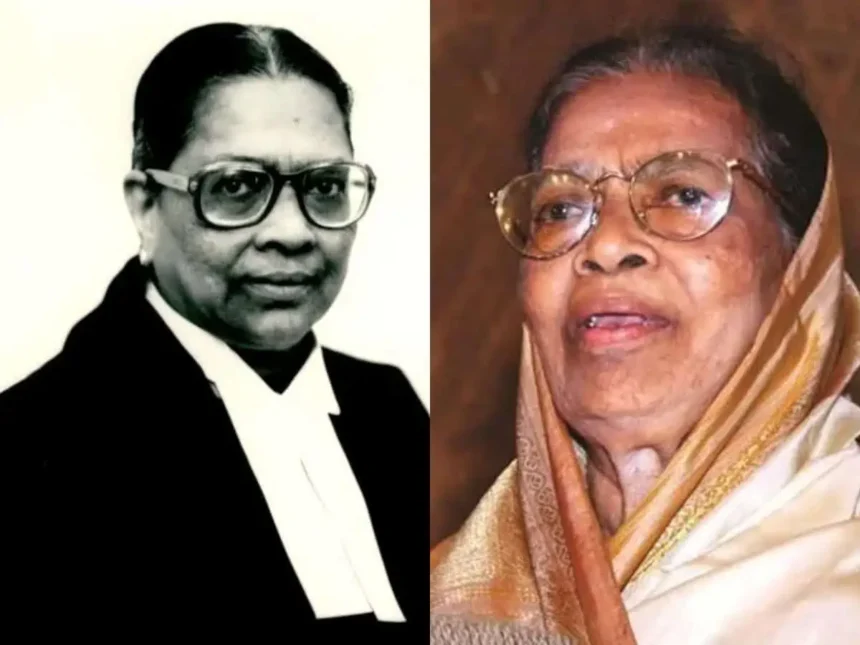India mourns the loss of a trailblazer in its legal history as Justice Fathima Beevi, the first female Supreme Court Judge, passes away at the age of 96. Her journey was not merely a personal triumph, but a landmark moment in the pursuit of gender equality within the judiciary.
Justice Beevi’s legacy is deeply intertwined with her relentless dedication to justice and her groundbreaking achievements. Born on April 30, 1927, in Pathanamthitta, Kerala, she embarked on her legal journey during an era when the legal profession was predominantly male-dominated. Undeterred, she pursued law at the Government Law College, Ernakulam, and subsequently carved a niche for herself.
More About Her Career:
Her illustrious career began in the Kerala Judicial Service, where she quickly rose through the ranks. In 1983, Justice Beevi etched her name in history when she was appointed as a judge in the Supreme Court of India, becoming the first woman to hold such a distinguished position. This momentous achievement marked a significant stride towards inclusivity and shattered gender barriers in the highest echelons of the Indian judiciary.
Justice Fathima Beevi’s tenure on the Supreme Court bench spanned seven years, during which she delivered judgments that reflected her commitment to justice, fairness, and upholding the principles of the Constitution. Her legal acumen and unwavering integrity earned her respect among peers and admiration from aspiring lawyers across the nation.
As the nation mourns the loss of this legal luminary, it is crucial to reflect on Justice Fathima Beevi’s contributions not only to the legal field but also to the broader societal shift towards gender equality. Her journey serves as a testament to the power of determination and the ability to challenge societal norms.
In commemorating Justice Fathima Beevi, we recognize her as a trailblazer, a beacon of hope for future generations of women in the legal profession. Her legacy will endure, inspiring countless individuals to pursue their aspirations without fear of societal constraints.






